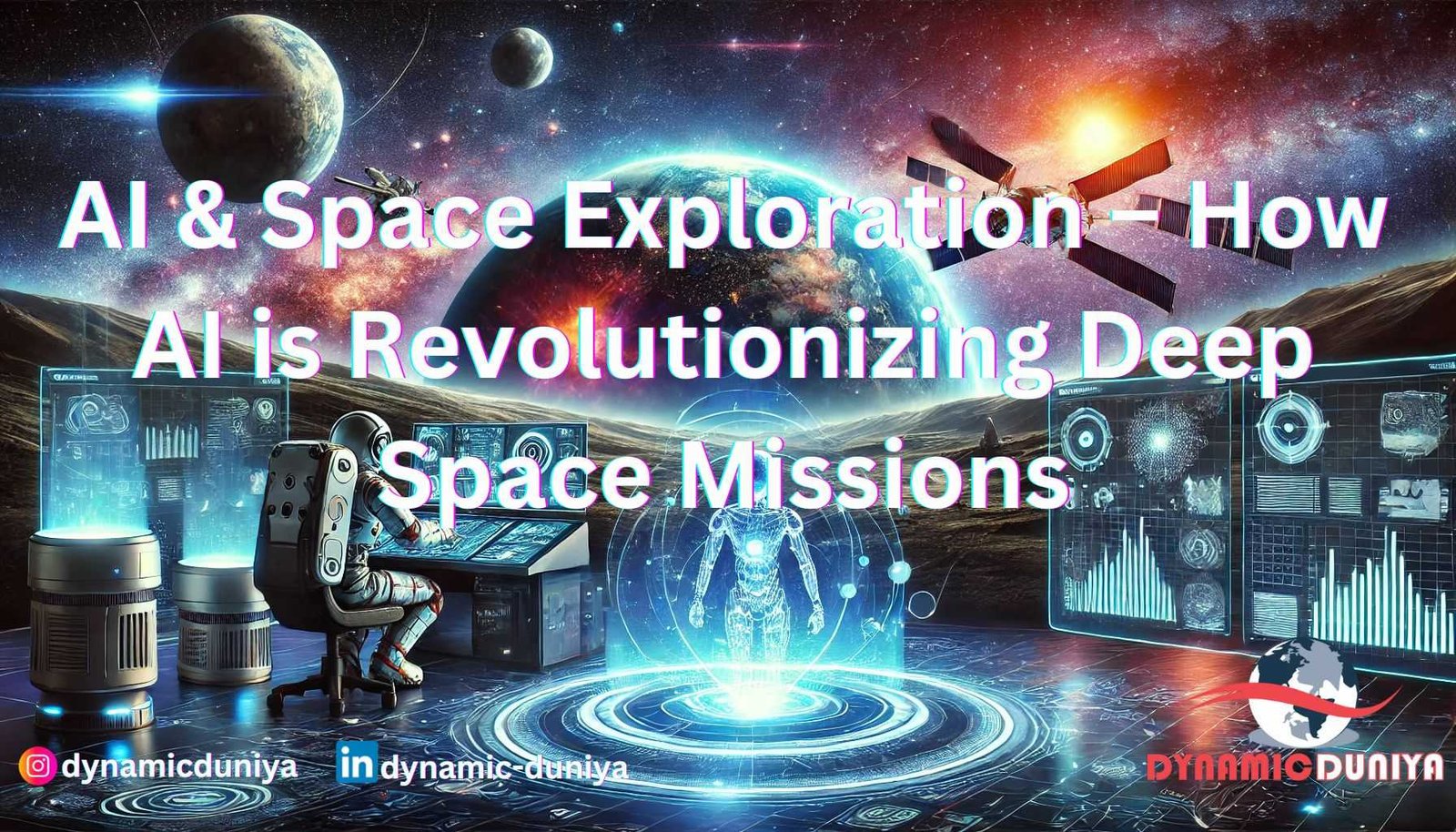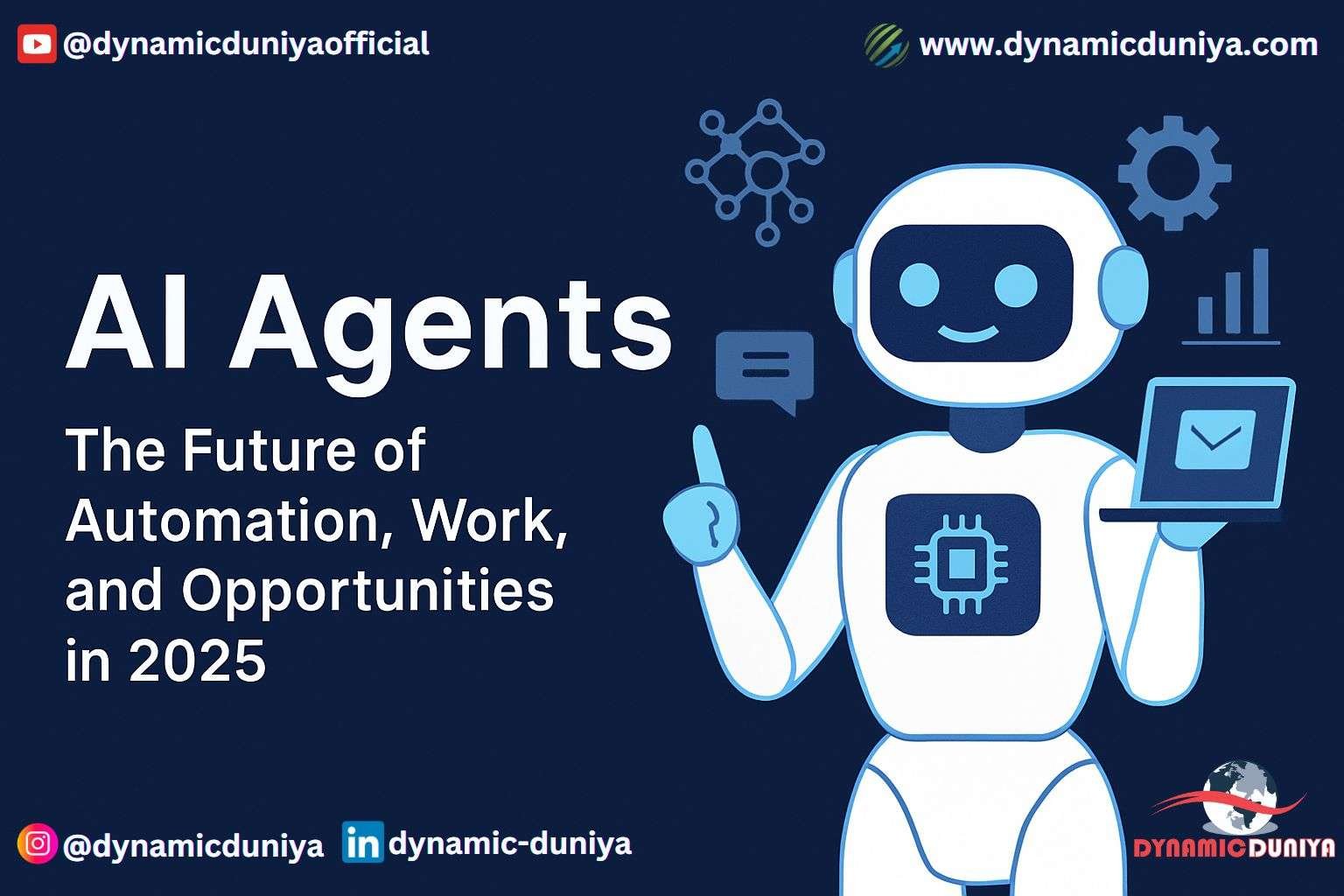AI & Space Exploration – AI’s Role in Deep Space Missions and Planetary Research

Introduction
Artificial Intelligence (AI) is revolutionizing space exploration by enhancing automation, optimizing data analysis, and enabling autonomous decision-making in deep-space missions. From planetary rovers to space telescopes, AI is playing a critical role in exploring the universe.
How AI is Used in Space Exploration
- Autonomous Navigation – AI enables robotic rovers like NASA’s Perseverance to navigate the Martian terrain without direct human control.
- Satellite Image Analysis – AI algorithms process and analyze vast amounts of data from satellites to detect climate patterns, map celestial bodies, and identify extraterrestrial phenomena.
- Astronomical Data Processing – AI helps scientists analyze cosmic data to discover exoplanets, black holes, and other astronomical objects.
- Mission Planning & Optimization – AI-powered models optimize space mission planning, improving fuel efficiency and trajectory calculations.
- Space Robotics – AI is crucial for developing robotic arms and humanoid robots to assist astronauts on the International Space Station (ISS) and future Mars missions.
Career Roadmap for Students in AI & Space Exploration
- Educational Background
- Pursue a degree in Computer Science, Aerospace Engineering, Robotics, or a related field.
- Gain knowledge in AI, Machine Learning, and Data Science.
- Technical Skills to Master
- Programming languages: Python, C++, MATLAB
- Machine Learning & Deep Learning frameworks: TensorFlow, PyTorch
- Space simulation software: OpenSpace, NASA’s GMAT
- Robotics and Automation
- Internships & Research Projects
- Apply for internships at space agencies like NASA, ISRO, and ESA.
- Work on AI projects related to space research, satellite data analysis, and robotics.
- Networking & Conferences
- Attend AI & space tech conferences such as NeurIPS, IEEE Aerospace Conference, and SpaceTech Expo.
- Join research communities like IEEE AI in Space and OpenAI forums.
- Career Opportunities
- AI Engineer for Space Agencies (NASA, ISRO, ESA, SpaceX, Blue Origin)
- Robotics Engineer for Astronaut Assistance
- Data Scientist for Space Research
- Aerospace AI Developer
Salary Range in 2025
The expected salary range for AI professionals in space exploration in 2025:
- Entry-Level AI Engineer: ₹8-15 LPA (India), $80,000-$120,000 (USA)
- Mid-Level AI Researcher: ₹15-30 LPA (India), $120,000-$180,000 (USA)
- Senior AI Scientist (Aerospace): ₹30-50 LPA (India), $180,000-$250,000 (USA)
Companies Hiring in AI & Space Exploration
- NASA – AI-driven mission planning & autonomous spacecraft control
- ISRO – AI-powered satellite image processing & deep-space automation
- SpaceX – AI-enhanced rocket landings & Mars exploration
- Blue Origin – AI-assisted robotic systems for interplanetary travel
- Lockheed Martin – AI applications in satellite technology
Future Scope & Demand
AI in space exploration is expected to grow exponentially, with advancements in autonomous spacecraft, AI-powered telescopes, and interstellar communication. The demand for AI professionals in space agencies and aerospace companies will continue to rise, making it a lucrative and futuristic career path.
Conclusion
AI is shaping the future of space exploration by enabling deep-space missions, analyzing astronomical data, and assisting astronauts. With the right skills and experience, students can embark on a rewarding career in this exciting field.
Random Blogs
- 5 Ways Use Jupyter Notebook Online Free of Cost
- Avoiding the Beginner’s Trap: Key Python Fundamentals You Shouldn't Skip
- Google’s Core Update in May 2020: What You Need to Know
- Role of Digital Marketing Services to Uplift Online business of Company and Beat Its Competitors
- The Beginner’s Guide to Normalization and Denormalization in Databases
- Ideas for Content of Every niche on Reader’s Demand during COVID-19
- Convert RBG Image to Gray Scale Image Using CV2
- Grow your business with Facebook Marketing
- Exploratory Data Analysis On Iris Dataset
- Where to Find Free Datasets for Your Next Machine Learning & Data Science Project
Prepare for Interview
- JavaScript Interview Questions for 5+ Years Experience
- JavaScript Interview Questions for 2–5 Years Experience
- JavaScript Interview Questions for 1–2 Years Experience
- JavaScript Interview Questions for 0–1 Year Experience
- JavaScript Interview Questions For Fresher
- SQL Interview Questions for 5+ Years Experience
- SQL Interview Questions for 2–5 Years Experience
- SQL Interview Questions for 1–2 Years Experience
- SQL Interview Questions for 0–1 Year Experience
- SQL Interview Questions for Freshers
- Design Patterns in Python
Datasets for Machine Learning
- Awesome-ChatGPT-Prompts
- Amazon Product Reviews Dataset
- Ozone Level Detection Dataset
- Bank Transaction Fraud Detection
- YouTube Trending Video Dataset (updated daily)
- Covid-19 Case Surveillance Public Use Dataset
- US Election 2020
- Forest Fires Dataset
- Mobile Robots Dataset
- Safety Helmet Detection
- All Space Missions from 1957
- OSIC Pulmonary Fibrosis Progression Dataset
- Wine Quality Dataset
- Google Audio Dataset
- Iris flower dataset
- Artificial Characters Dataset
- Bitcoin Heist Ransomware Address Dataset






